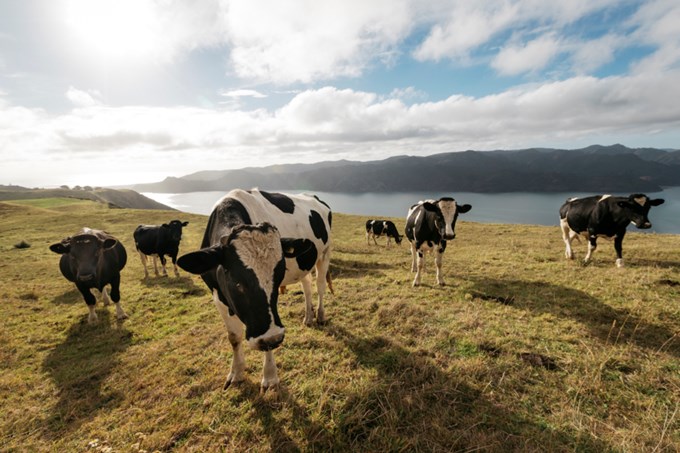Auckland Council is the biggest urban farmer in the region.
With 1500 hectares of green space as farms across 19 regional parks, Auckland boasts some of the most picturesque coastal farmland in New Zealand.
Auckland’s farming future is getting a boost from technology and innovation. Farms and Food for the Future is a new initiative that is embracing technology to protect our green spaces and transform our farming practices.
When people think of ways to improve farming practices, physical labour like shearing, fencing and drenching often springs to mind.
But Auckland Council’s Head of Innovation, Matt Montgomery, says technological solutions designed in collaboration with other organisations are an increasingly important part of the council’s efforts to improve its farming practices.
“I see technology allowing us to do more with less, to better inform what we’re doing. And make sure our improvements are cost-effective."

Technology transforming traditional farming
Auckland Council’s Farming Business Manager, Dene Noonan, says sensors installed on farms are monitoring everything from soil quality to cow growth.
“Sensors are helping create a 'digital twin' of the farms, which will be used to measure the effects of different farming practices in precise and granular detail.”
“It’s figuring out how we manage the farm as a holistic system so we can balance it being a green space, a productive farm and a key part of the natural environment.”
“Not many people realise how special our farms are. They are situated on coastal and headland locations. As guardian of these green spaces, Auckland Council holds them for the public to use and enjoy. Auckland Council’s farms are a link to our heritage and a connection to where our food comes from.”
“We’re now looking to technology to move from traditional farming practices where we focused on keeping the grass down, to new practices that allow us to maximise land use and link existing technologies in ways we haven’t done before.”

Farms and food of the future
Matt Montgomery says the council can play a role in spearheading green technology. For example, all of the results and data from the newly launched Farms and Food of the Future programme will be made available to private sector farms across the region.
“Farmers' livelihoods are directly dependent on the productivity of the farms. The promise of new technology is exciting and will make future farming practices easier and more sustainable.”
But he warns against the temptation to view it through a utopian lens. In the end, it can only inform us, and make some tasks easier. We still have to do the real work of saving the world and making our city a better place, he says.
“Technology won’t save us. It is us who will save us. But technology can be an enabler. We have to integrate technology into what we do.”
Find out more at Techweek19
Matt Montgomery joins speakers in the 2019 Innovation Showcase on 20 May, part of the Tripartite Economic Alliance meeting between Auckland, Los Angeles and Guangzhou, and Techweek19 (20-26 May).


